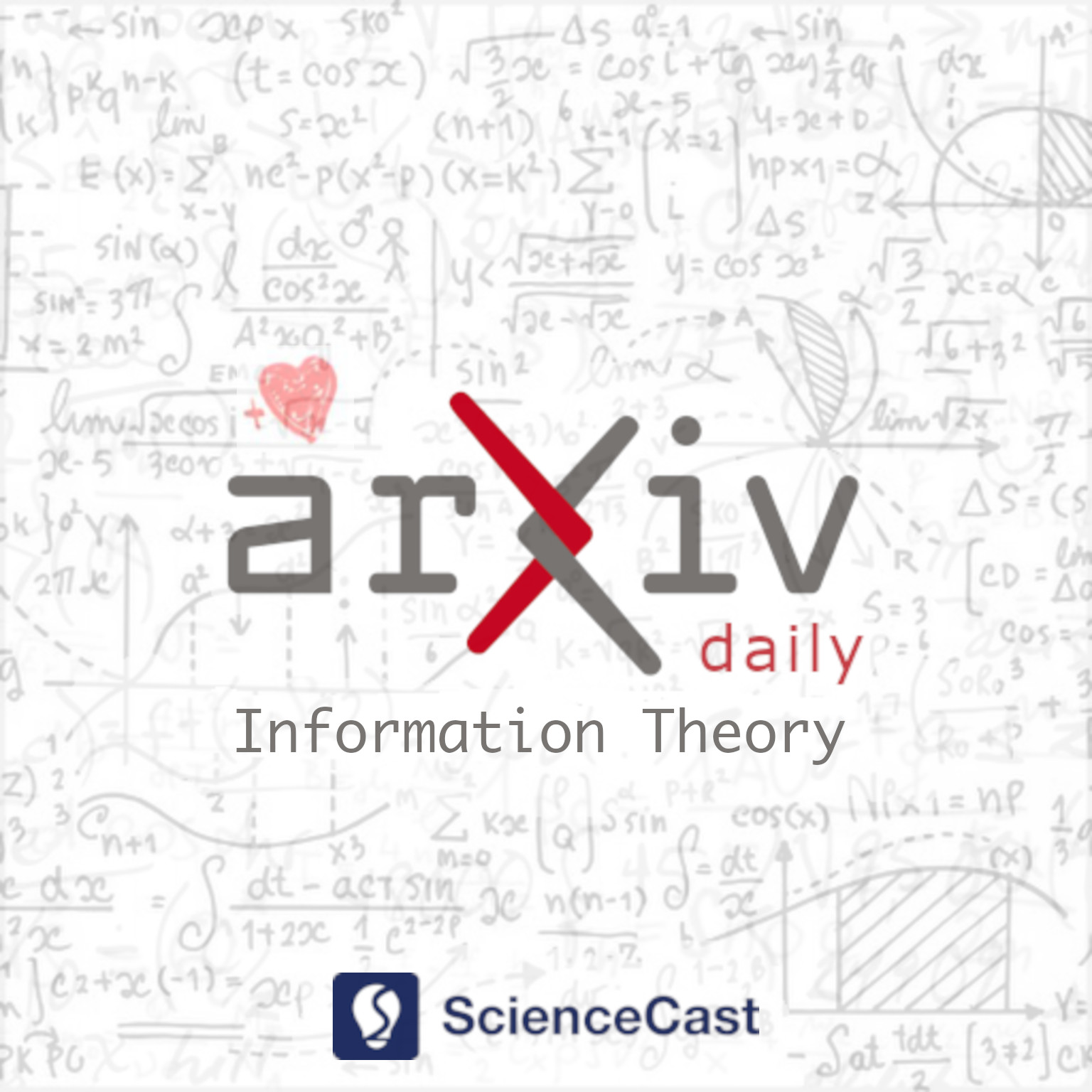
Information Theory (cs.IT)
Mon, 01 May 2023
1.Exactly Tight Information-Theoretic Generalization Error Bound for the Quadratic Gaussian Problem
Authors:Ruida Zhou, Chao Tian, Tie Liu
Abstract: We provide a new information-theoretic generalization error bound that is exactly tight (i.e., matching even the constant) for the canonical quadratic Gaussian mean estimation problem. Despite considerable existing efforts in deriving information-theoretic generalization error bounds, applying them to this simple setting where sample average is used as the estimate of the mean value of Gaussian data has not yielded satisfying results. In fact, most existing bounds are order-wise loose in this setting, which has raised concerns about the fundamental capability of information-theoretic bounds in reasoning the generalization behavior for machine learning. The proposed new bound adopts the individual-sample-based approach proposed by Bu et al., but also has several key new ingredients. Firstly, instead of applying the change of measure inequality on the loss function, we apply it to the generalization error function itself; secondly, the bound is derived in a conditional manner; lastly, a reference distribution, which bears a certain similarity to the prior distribution in the Bayesian setting, is introduced. The combination of these components produces a general KL-divergence-based generalization error bound. We further show that although the conditional bounding and the reference distribution can make the bound exactly tight, removing them does not significantly degrade the bound, which leads to a mutual-information-based bound that is also asymptotically tight in this setting.
2.On Mismatched Oblivious Relaying
Authors:Michael Dikshtein Shitz, Nir Weinberger Shitz, Shlomo Shamai Shitz
Abstract: We consider the problem of reliable communication over a discrete memoryless channel (DMC) with the help of a relay, termed the information bottleneck (IB) channel. There is no direct link between the source and the destination, and the information flows in two hops. The first hop is a noisy channel from the source to the relay. The second hop is a noiseless but limited-capacity backhaul link from the relay to the decoder. We further assume that the relay is oblivious to the transmission codebook. We examine two mismatch scenarios. In the first setting, we assume the decoder is restricted to use some fixed decoding rule, which is mismatched to the actual channel. In the second setting, we assume that the relay is restricted to use some fixed compression metric, which is again mismatched to the statistics of the relay input. We establish bounds on the random- coding capacity of both settings, some of which are shown to be ensemble tight.
3.Non-Binary LDPC Code Design for Energy-Time Entanglement Quantum Key Distribution
Authors:Debarnab Mitra, Lev Tauz, Murat Can Sarihan, Chee Wei Wong, Lara Dolecek
Abstract: In energy-time entanglement Quantum Key Distribution (QKD), two users extract a shared secret key from the arrival times (discretized as symbols) of entangled photon pairs. In prior work, Zhou et al. proposed a multi-level coding (MLC) scheme that splits the observed symbols into bit layers and utilizes binary Low-Density Parity-Check (LDPC) codes for reconciliation of the symbols. While binary LDPC codes offer low latency for key generation, splitting the symbols into bits results in a loss of key generation rate due to error propagation. Additionally, existing LDPC codes do not fully utilize the properties of the QKD channel to optimize the key rates. In this paper, we mitigate the above issues by first generalizing the MLC scheme to a non-binary(NB) MLC scheme that has layers with non-binary symbols and utilizes NB-LDPC codes. We show the NB-MLC scheme offers flexibility in system design. Additionally, we show that the NB-MLC scheme with a small symbol size per layer offers the best trade-off between latency and key rate. We then propose a framework to jointly optimize the rate and degree profile of the NB-LDPC codes that is tailored towards the QKD channel resulting in higher key rates than prior work.